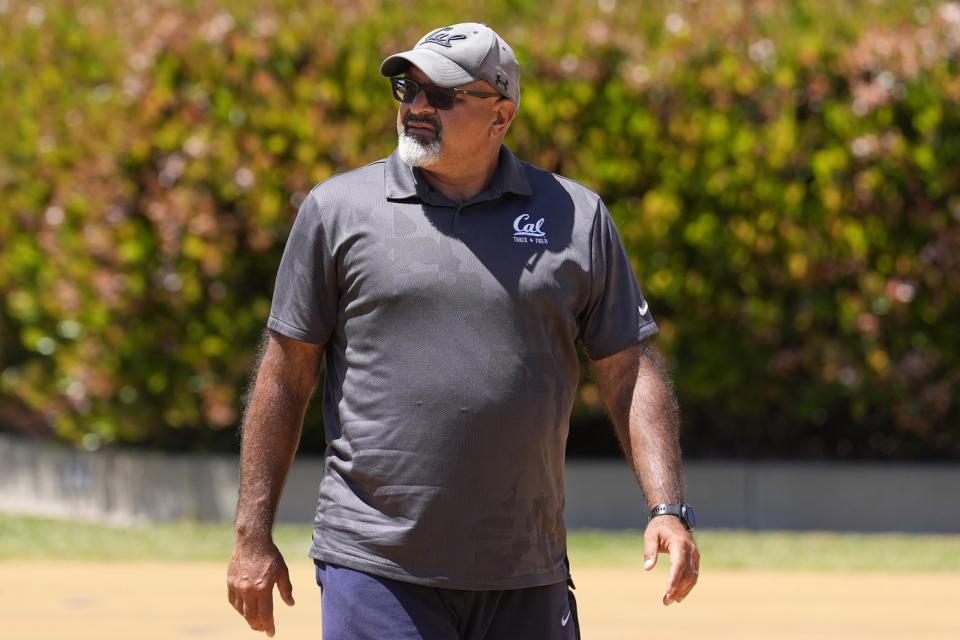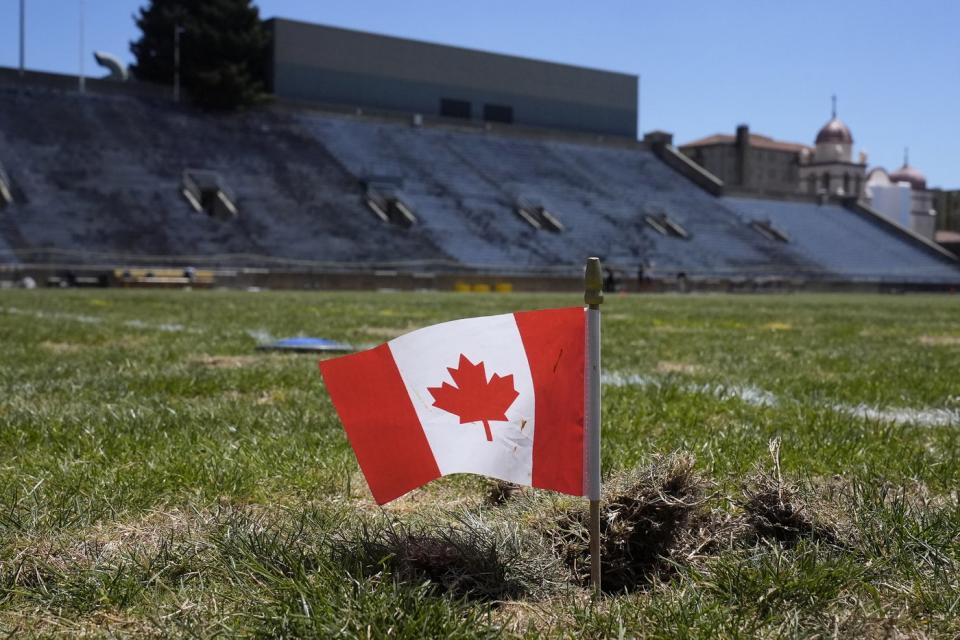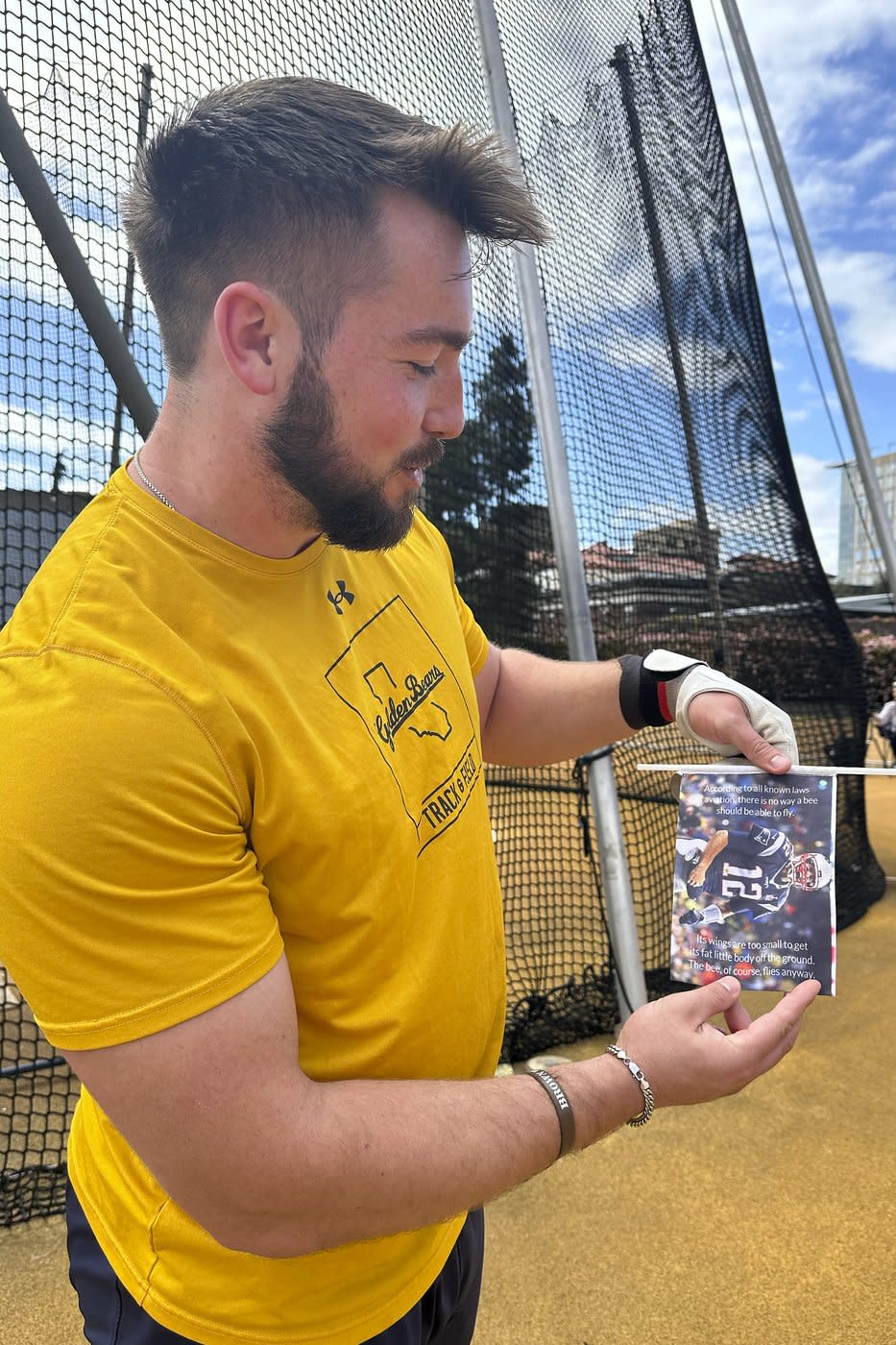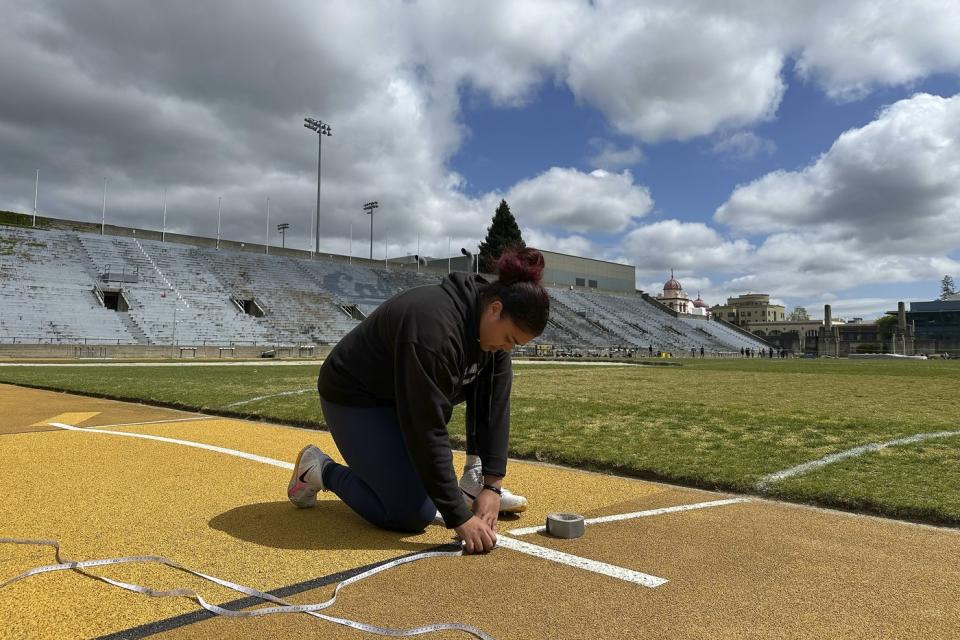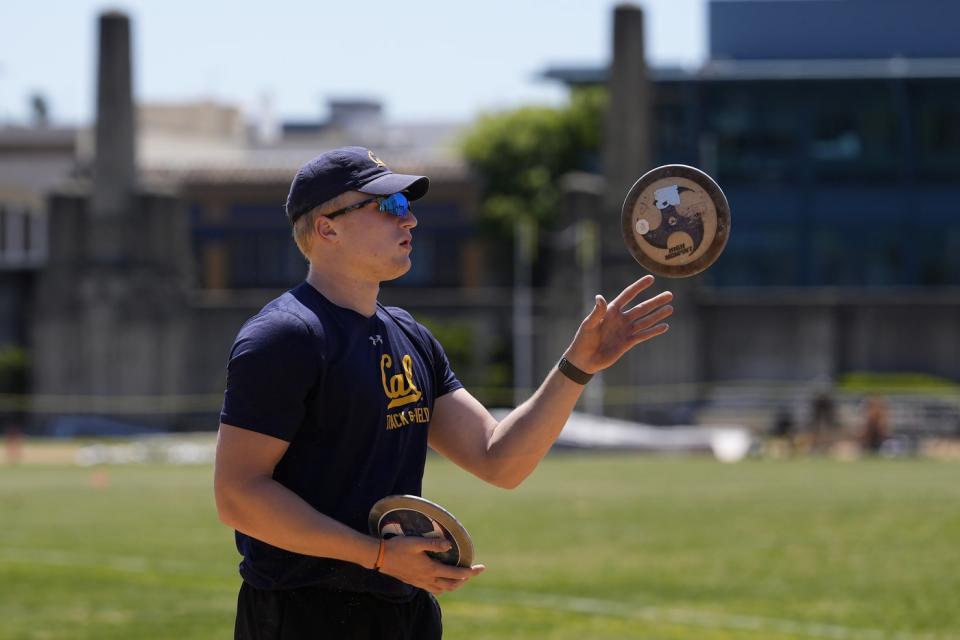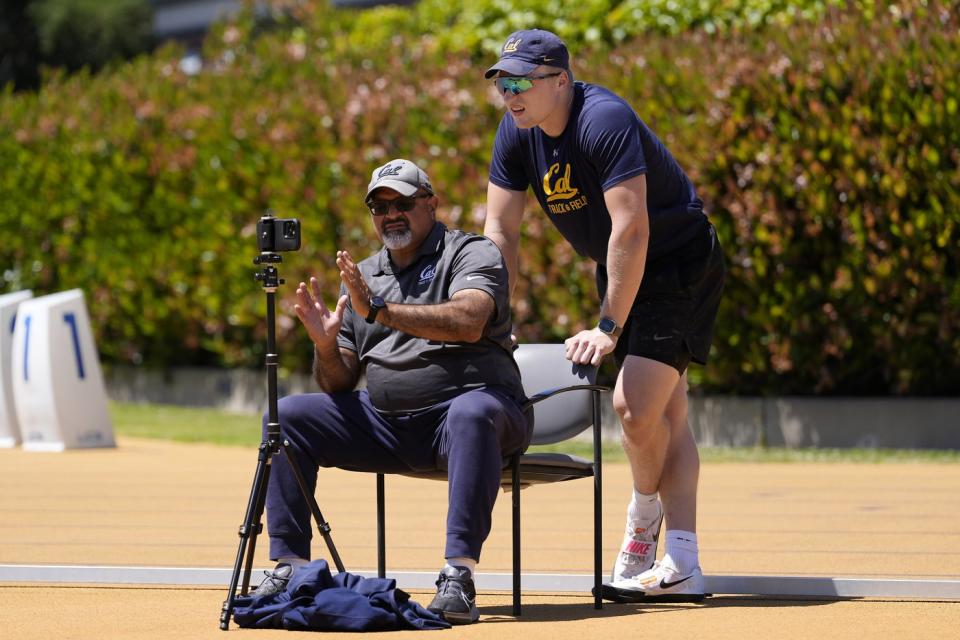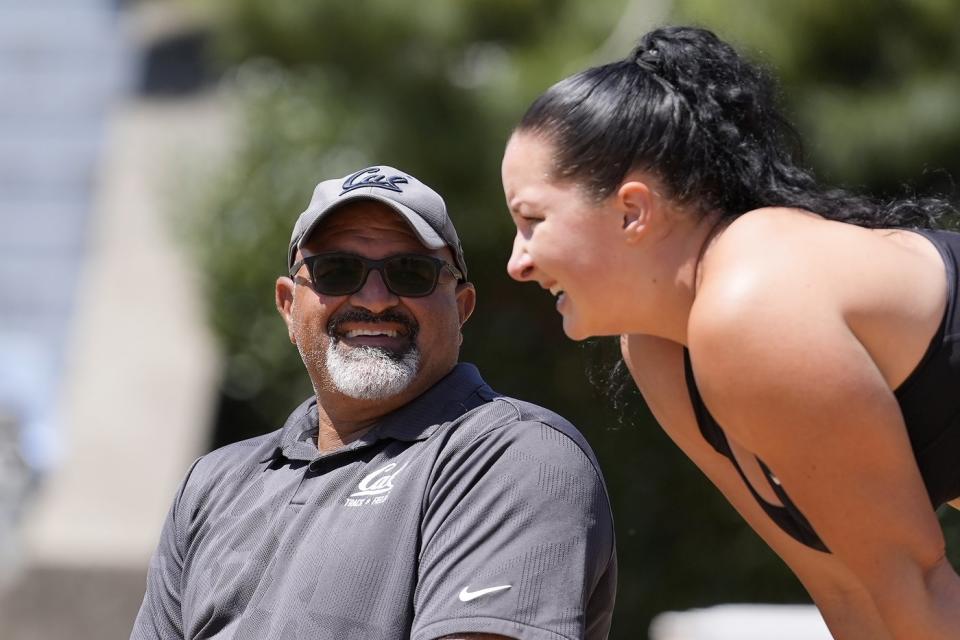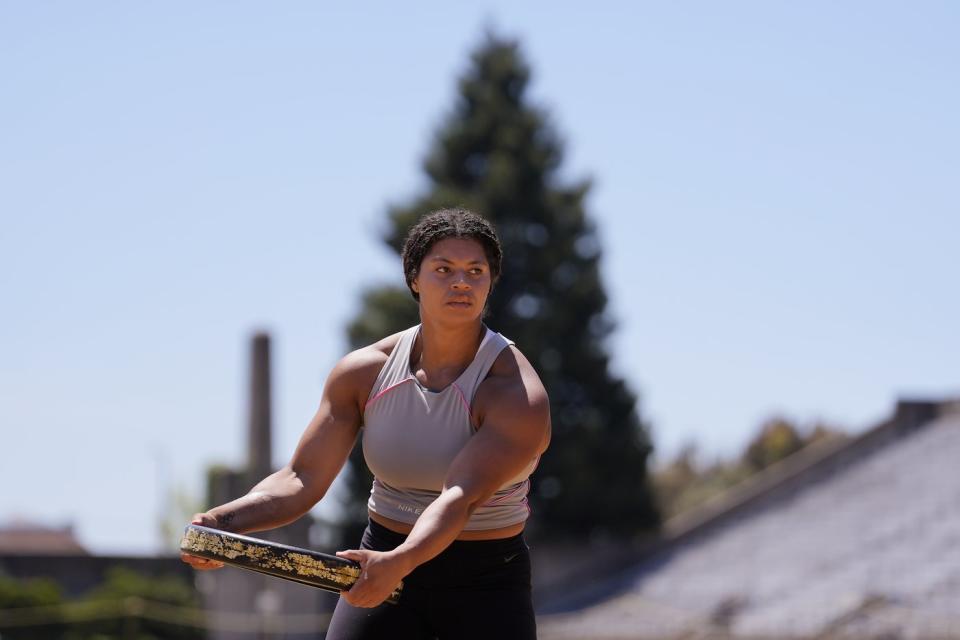Throwing coach Mo Saatara has built a close-knit program of student-athletes and pros in California
BERKELEY, Calif. (AP) — Mohamad Saatara unpacks the laser measuring tape and focuses in as discus world record-holder Mykolas Alekna steps into the cage and lets one fly.
Alekna methodically makes his way to where the throw has landed and waits for Saatara to announce the result: “70.60,” the well-traveled University of California coach shouts out.
Alekna moved across the world from Lithuania to Berkeley so he could train under Saatara and attend school. He is part of a close-knit community of athletes from around the globe, some of them Olympians who have stayed well after their collegiate careers to train under Saatara.
“We have a really great group here, a lot of international students, a lot Americans, too, so a very nice mix,” Alekna said. “I’m really happy I can be friends with people from around the world. I’m really happy to be a part of this group.”
Caisa-Marie Lindfors is from Sweden and transferred from Florida State. Olympic hammer thrower Camryn Rogers came from Canada. And Carolina Visca from Italy.
They’re Mo’s Throwers. They’re practically family.
Coach Mo, as they call him, is at the center of their team culture.
“Mo is this group. The main reason most people are here is Mo,” Dutch hammer thrower Audrey Jacobs said. “I wouldn’t be here if it wasn’t for Mo so I’m very thankful for him. Moving away is a really big step but totally worth it. We have such an amazing group and a really, really good coach. It’s a big decision but Mo made it a pretty easy one.”
Others share that sentiment.
Lindfors strolls across the grass at Edwards Stadium between discus sets to place a tiny Swedish flag into the ground marking the spot of her throw. They recently started doing this — Jacobs’ idea to keep everyone from mixing up their throws.
There’s a British flag. An American flag, too.
“It’s really cool to see how much diversity we have on our team and how we all kind of have our own little thing like this,” Jacobs said.
___
Rogers, the world hammer throw champion, arrives midafternoon to get to work. She placed fifth in the hammer throw at the Tokyo Olympics, the highest-ever finish by a Canadian woman in the event.
This is her seventh year training under Saatara, and her world title last year in Budapest was the first by a Canadian woman in 20 years.
Rogers immediately sensed a good vibe around the program when she made her official recruiting visit.
“The team was one of the things that drew me in a lot,” she said. “My flight home is only two hours, I’m really not that far, but still you have a visa, you’re far away from your family, so many things are changing all at once when you go to college, then when you’re in a different country it’s even more.
“So being able to find a group of people that I thought I could come into and have a second family with and feel supported by was really important to me.”
___
In a fold-out chair behind the throwing cage sits Saatara. The Iranian-born coach records video of the athletes and offers his wisdom to both college and pro athletes who are here because of his outstanding reputation. He has coached everywhere from Michigan and Northern Arizona to Cal Poly Pomona and his alma mater, Cal State Los Angeles, where he was an All-American hammer thrower.
“Don’t tighten up on the hammer like that,” Saatara instructs Kegan Schroeter.
“Patient, patient, more patiently. See, now you have more power,” he offers Lindfors. “There you go. That’s pretty good."
Saatara cherishes this tranquil space tucked away in their secluded track complex in busy downtown Berkeley — only a couple of exceptional Alekna heaves away from a bustling main street through campus.
Coach Mo hopes to have as many as 15 of his athletes at the Paris Olympics this summer representing multiple countries.
“He’s one of the best coaches in the world,” Alekna said.
And Saatara takes great pride in the diversity of his program.
“I try to make it an environment where it’s not necessarily calm but peaceful, so you can focus really well and do your work,” Saatara said. “Throwing takes a lot of mental effort, energy and focus. We try to make an environment, it’s obviously very energetic but you want to make it a peaceful environment.”
Alekna used a redshirt season to focus on the Paris Games. Competing unattached, he landed a world-record discus throw of 74.35 meters on April 14 in Oklahoma, topping the previous world-best set in 1986 by 11 inches — a mark his father, Virgilijus, just missed in his day.
“It’s an enormous accomplishment, because the record he broke was the oldest record in track and field,” Saatara said. “We’re not thinking about chasing records, we’re just thinking about preparing for the main championships.”
Like Alekna and so many others, Visca craved a chance to live in a new place, get her education and throw the javelin after spending her entire life in Rome.
“I was like ‘OK, I want something different for my life,’ so coach Mo was really welcoming with me,” she said. “I think it will be one of the best experiences I will ever have in my life.”
___
AP Olympics: https://apnews.com/hub/2024-paris-olympic-games
Janie Mccauley, The Associated Press

 Yahoo Sports
Yahoo Sports 